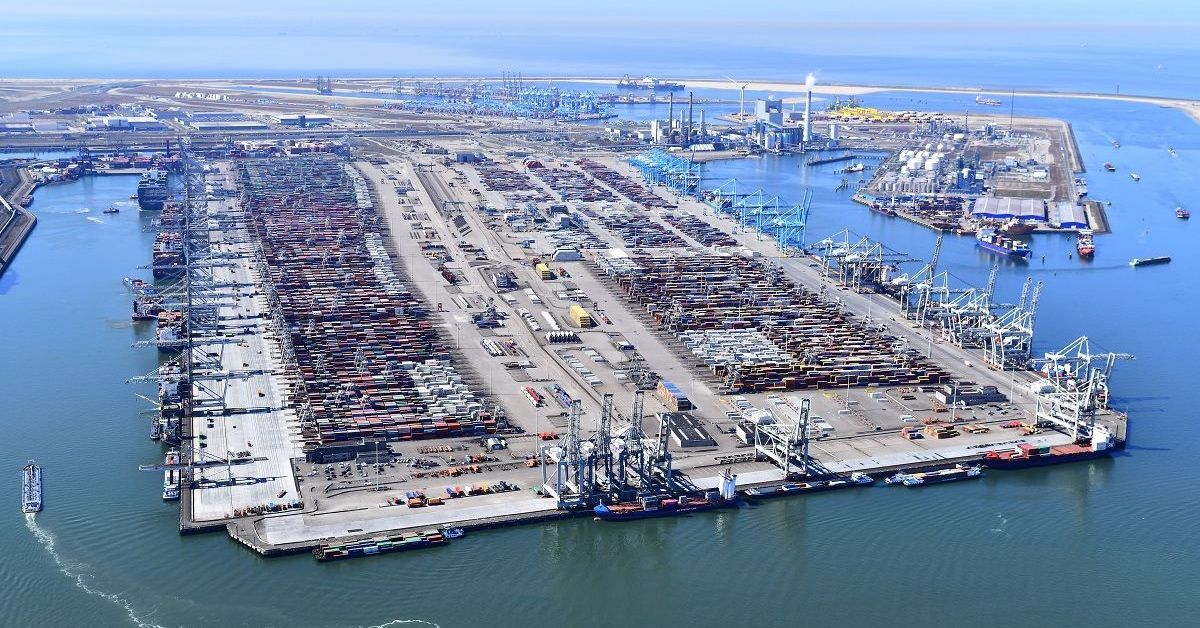Throughput in the port of Rotterdam declined by 0.7% in 2024. Total throughput amounted to 435.8 million tonnes, compared to 438.8 million tonnes in the same period last year. The decline in throughput is mainly due to lower coal and crude oil throughput. Growth was recorded in the container segment. Driven by increasing consumer spending, throughput grew by 2.8% to 13.8 million TEU. Throughput in the iron ore & scrap, mineral oil products, and other dry bulk segments also increased. The Port of Rotterdam Authority had a strong financial year. The solid financial position enables the Port of Rotterdam Authority to make significant investments in infrastructure for a future-proof port. For example, construction has started on the CO₂ transport and storage project Porthos, and the Port of Rotterdam Authority has invested in enhancing the digital resilience of the port of Rotterdam by setting up a national cybersecurity platform and further rolling out the Secure Chain.
The Port of Rotterdam Authority aims to develop a future-proof port in harmony with its surroundings. Connecting the city and the port is a key priority for the Port of Rotterdam Authority. Over the past year, new collaborations have been established with partners in Rotterdam South, such as the Theatre Zuidplein. Through the Port Environment Fund, the Port of Rotterdam Authority continues to invest in the quality of the living environment in the city and the region. A pilot programme has also been launched with port consultation hours for residents at various neighbourhood hubs, and the construction of the Portlantis port experience centre has been completed.
Over the past year, several projects have been launched that contribute to the energy transition. The construction of the CO₂ transport and storage project Porthos has started. In the second half of the year, the construction of the compressor station, a key component of this project, began. As of 2026 the captured CO₂ will be pressurised at the compressor station, before being transported via an offshore pipeline to a depleted gas field beneath the North Sea. The construction of the hydrogen pipeline through the port and Shell’s hydrogen plant is also in full swing. Additionally, new agreements for the use of shore power have been signed with container terminals on the Maasvlakte. The shore power installation for Cruise Terminal Rotterdam is now complete and will be commissioned after a testing phase in the spring of 2025.
Clarity has also been provided on the development of the Delta Rhine Corridor (DRC). While a four-year delay was announced earlier last year for the development of hydrogen and CO₂ pipelines, a decision was made at the end of the year to prioritise these infrastructures. The hydrogen pipeline is now scheduled for completion in 2031/2032, and the CO₂ pipeline in 2032/2033. The Port of Rotterdam Authority welcomes this decision by the Minister for Climate and Green Growth and continues to push for further acceleration, as these connections are crucial for the sustainability of industry in Rotterdam and the European hinterland.







